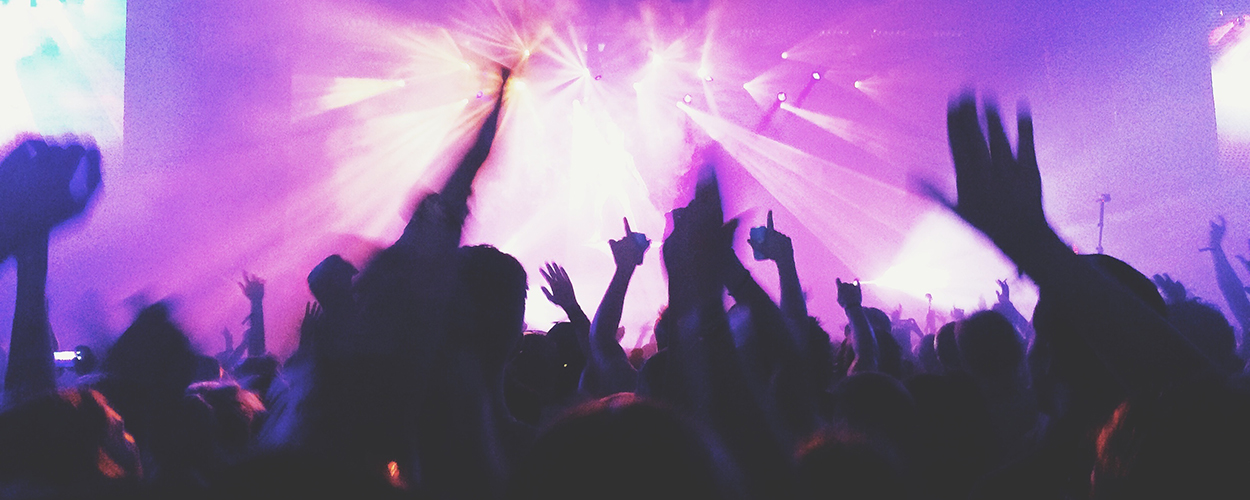This website uses cookies so that we can provide you with the best user experience possible. Cookie information is stored in your browser and performs functions such as recognising you when you return to our website and helping our team to understand which sections of the website you find most interesting and useful.
Business News Live Business Top Stories
Only 40% of American sport and music fans say they’ll rush back to live events once COVID-19 restrictions are lifted
By Chris Cooke | Published on Wednesday 29 April 2020

As debates continue as to quite how long the COVID-19 pandemic will have an impact on the live entertainment sector, a new poll of American consumers from Reuters and Ipsos shows plenty of concern about attending large-scale events until a vaccine is found for the virus. Less than half of those surveyed said they planned to return to major sporting and entertainment events as soon as government restrictions are lifted.
After it became clear that COVID-19 would have a significant effect on live entertainment for months rather than weeks, some started to speculate that maybe we should actually be talking about the consequences of the pandemic in terms of years. Of course, there are so many unknowns in relation to all things COVID-19 it’s really hard to know, and all eyes remain on those countries that were hit by the pandemic first where enforced lockdown measures have already started to be lifted.
But even as governments around the world start to relax the rules that were put in place to restrict and delay the spread of COVID-19, will consumers readily return to sporting, music and other live events while there is a risk of the virus returning and still no vaccine available to protect people from contracting it?
That’s the question Reuters and Ipsos asked nearly 4500 Americans earlier this month. And while that’s a relatively small sample, the research suggests that the live entertainment business may have to deal with an annoyingly slow return to the norm.
Even among those respondents who would, in normal circumstances, routinely go to sporting, music or other live events, only around four in ten said that they planned to start attending such things as soon as government restrictions were lifted. Another 40% said that they were willing to wait for a vaccine to be developed that combats the coronavirus, even if – as expected – it could take more than a year for such a vaccine to be identified and tested.
In its report on the poll, Reuters also quotes an American academic who specialises in the sports business, Victor Matheson, who mused: “Just because people say we can go back, until people feel fully safe … they aren’t going to go back. We go to games for entertainment and you’re not going to be very entertained if you’re not worrying about who the next player to bat is and are instead worrying about that person who just coughed two rows down”.
A number of organisations in the sports sector are considering resuming their competitions but having games and matches go ahead without an audience in the venue, instead relying on broadcast coverage and live streaming to get said events to the fans.
A similar move in music could see artists perform in empty venues with the show livestreamed, on the basis that that would still allow for a better experience than the current living room-based streamed performances, the success of which could be partly put down to novelty value.
Reuters asked the sports fans among its poll respondents about that plan. 59% of those surveyed said that they thought the streaming of crowd-free games and matches was a good idea, while a third disagreed.
Beyond that plan, some have proposed that venues could introduce social-distancing measures at events to allay the fears of audiences. Though that plan poses various questions. How easy would it be to enforce social distancing even at seated events? Are those events commercially viable if they are only able to operate at, say, 25% capacity? And would such measures even reassure those concerned about the chances of contracting the virus?
Of course, the Reuters/Ipsos poll was undertaken in the very epicentre of the pandemic where people are being constantly bombarded with doom and gloom messaging. Maybe once things start to return to something more like normal those who currently express reservations about attending large-scale events again until a vaccine is available may have a change of heart. But – as with all things COVID related – it really remains to be seen.





